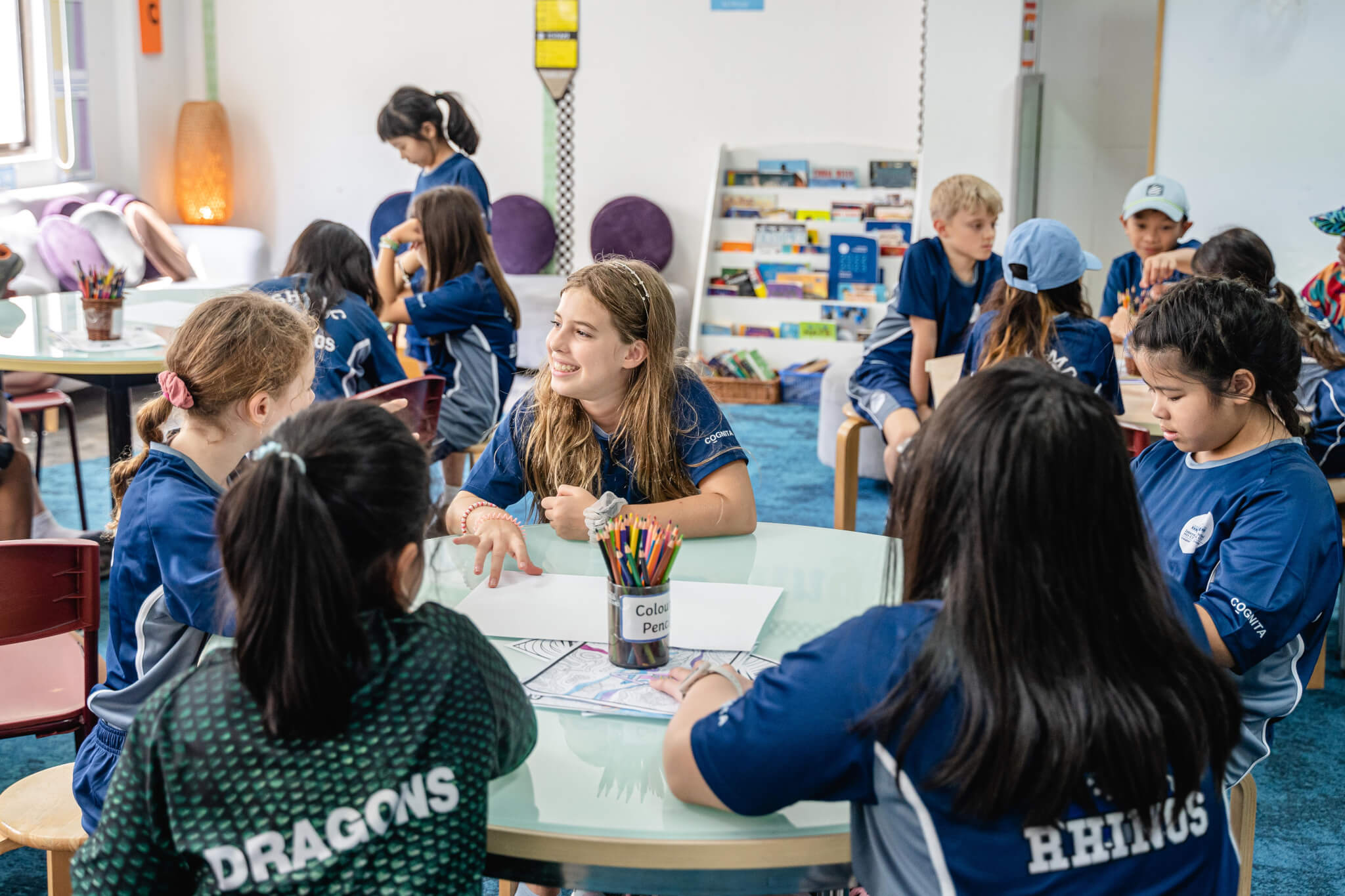Fostering Safe Spaces
Table of Contents [show]
Addressing Bullying in International Schools through the POSISH Curriculum
Bullying is a pervasive issue in schools worldwide, and international schools are no exception. As hubs of diversity and cultural exchange, schools face unique challenges in addressing and combating bullying. Recognizing the critical importance of social-emotional learning, counseling, and safeguarding, schools must adopt comprehensive strategies and programmes to create safe and inclusive environments. Here, we will explore how international schools can effectively combat bullying, emphasizing ISHCMC’s responsive K-12 Positive ISHCMC (POSISH) curriculum designed to prioritize students’ wellbeing and proactively reduce bullying in school.
Defining Bullying within School Contexts
Defining bullying is crucial as it’s often a blanket term encompassing various behaviors. Establishing a shared understanding ensures clarity and aligns interventions. It distinguishes between conflict and repeated harmful behavior, fostering a unified approach to create safer environments and address the complexities surrounding this multifaceted issue.
Bullying at ISHCMC means aggressive and typically repeated behavior by a student. The behavior is intended to:
-
Causing repeated harm, fear or distress to another individual, which may include physical, psychological, social or academic harm, can also include damage to the individual’s reputation or to their property.
-
Create a negative environment at ISHCMC for another individual that may or may not include the use of technology.
Cultivating a Culture of Inclusion to Avoid Bullying
International schools inherently bring together students from various cultural backgrounds. It is imperative to foster a culture of inclusion that celebrates diversity rather than allowing it to become a source of division. The ISHCMC POSISH curriculum strongly emphasizes teaching empathy, respect, and appreciation for differences. By instilling these values early on, students develop a foundation for understanding and accepting one another, creating a positive school culture that discourages bullying behavior.
This curriculum spirals up through three main pillars; Digital Citizenship, Positive Education and Comprehensive Sexuality Education. For example students who are in the range of five to eight years of age may explore an objective in Positive Education that states: I can identify bullying behaviors and know what to do when I hear/see or feel bullying. Students ages nine to twelve may explore an objective in digital citizenship that states: I identify the different ways that bullying can occur in the digital world & can distinguish between harmless banter & more serious behavior, and learners ages 15 – 18 may explore the objective within Comprehensive Sexuality Education that states: It is important to challenge stigma and discrimination and promote inclusion, non-discrimination and diversity. In these ways students learn the skills, attitudes and dispositions to build resilience and combat bullying.
Implementing Proactive Counseling Programs
Traditional disciplinary approaches often fall short in preventing bullying. International schools must prioritize proactive counseling programs that address the root causes of aggressive behavior. The POSISH curriculum integrates counseling elements that focus on emotional intelligence, conflict resolution, and self-awareness. By providing students with the tools to navigate their emotions and conflicts constructively, we empower them to make positive choices and reduce the likelihood of engaging in bullying behavior. At ISHCMC we have a large and comprehensive student support services department, led by Dr. Hana. For more information about student support services at ISHCMC, please reach out to us.
Utilizing Restorative Practices to Address Bullying
Restorative practices offer a transformative approach to address bullying by focusing on accountability, healing, and rebuilding relationships. Encouraging dialogue and understanding, they empower both victims and perpetrators, fostering empathy and personal growth. This approach shifts the focus from punitive measures to resolution and learning, creating a supportive environment where individuals take responsibility for their actions and actively contribute to a more respectful school community.
Promoting Cyber Safety Education
In today’s digital age, bullying extends beyond the physical boundaries of the schoolyard into the online realm. International schools must address cyberbullying through targeted educational initiatives. The POSISH curriculum incorporates modules on cyber safety, teaching students about responsible online behavior, the impact of digital words, and the importance of reporting online harassment. By staying ahead of technological trends, schools can better equip students to navigate the complexities of the virtual world safely.
Establishing Clear Reporting Mechanisms
One of the most effective ways to combat bullying is by establishing clear reporting mechanisms. ISHCMC has clear policies and guidelines for reporting bullying incidents and ensures that students, teachers, and staff know the procedures in place. By creating a safe and confidential space for reporting, schools empower individuals to speak up without fear of retaliation. This transparency facilitates timely intervention and sends a strong message that bullying will not be tolerated. Teachers use reporting mechanisms such as Low Level Concerns, while Parents are able to reach out to Vice Principals or Principals directly. Students are encouraged to seek help from a counselor, report using a Google form, or use anonymous handwritten notes within dropboxes. Signs are placed around the school to encourage students and parents to know the go-to people who are available to seek help from.
Addressing bullying in international schools requires a holistic approach that integrates social-emotional learning, counseling, and safeguarding. The POSISH curriculum is a beacon in this endeavor, offering a comprehensive framework to prioritize students’ well-being. By cultivating a culture of inclusion, implementing proactive counseling programs, promoting cyber safety education, and establishing clear reporting mechanisms, international schools can create environments where every student feels safe, valued, and ready to thrive.






